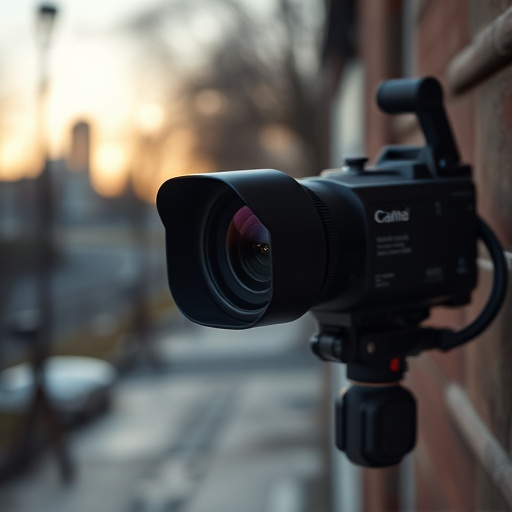Laws regarding secret nanny cameras strictly regulate surveillance in rental properties, prioritizing tenant privacy. Installation requires explicit consent and open camera placement to avoid legal issues like fines or charges. Landlords must inform tenants about surveillance systems to maintain a balance between property protection and privacy rights. Adhering to these laws is crucial to avoid severe consequences.
Uncovering hidden surveillance spots in rental properties raises important privacy concerns. While some landlords may install nanny cameras for legitimate reasons, many tenants are unaware of their rights and the legal laws regarding secret nanny cameras. This article delves into the legal boundaries surrounding these devices, explores common hidden camera locations, and provides measures to protect your privacy as a tenant. Understanding these aspects is crucial in navigating the complex legalities of surveillance in rental spaces.
- Understanding Legal Boundaries of Nanny Cameras
- Common Hidden Camera Locations in Rentals
- Protecting Privacy: Rights and Measures
Understanding Legal Boundaries of Nanny Cameras
While considering secret surveillance spots in rental properties, it’s crucial to understand the laws regarding secret nanny cameras. The use of such devices is heavily regulated by privacy laws, which vary significantly across different jurisdictions. In many countries, installing hidden cameras in a tenant’s property without their explicit consent is illegal and can result in severe legal consequences.
The Laws Regarding Secret Nanny Cameras aim to protect individuals’ right to privacy within their own homes. Landlords or property owners must secure written permission from tenants before installing any surveillance equipment. Additionally, the placement of these cameras must be open and transparent, avoiding covert or hidden locations. Failure to comply with these regulations can lead to civil lawsuits, fines, or even criminal charges.
Common Hidden Camera Locations in Rentals
In rental properties, hidden cameras can be found in various discreet locations, raising concerns about privacy and the laws regarding their use. Common spots include near entry points like doors and windows, especially in areas where tenants might undress or engage in intimate activities, such as bedrooms or bathrooms. Additionally, these devices may be installed in common areas like hallways or laundry rooms to monitor access and security. It’s essential to be aware of local laws regarding secret nanny cameras, as many jurisdictions have strict regulations against their use without explicit consent from all occupants. Tenants should thoroughly inspect a property for any signs of hidden cameras before agreeing to rent and report any findings to landlords, who must adhere to legal boundaries in their surveillance practices.
Protecting Privacy: Rights and Measures
In many jurisdictions, the placement and use of secret surveillance devices, commonly known as nanny cameras, in rental properties are heavily regulated by laws regarding privacy rights. Tenants have a legitimate expectation of privacy in their homes, and any violation of this can lead to severe legal repercussions for landlords or property owners. It’s essential to understand these laws before considering such measures.
The installation of secret cameras without the knowledge of tenants is generally prohibited unless there are exceptional circumstances, such as reasonable suspicion of illegal activity. Landlords should always err on the side of caution and inform tenants about surveillance systems for them to give informed consent. This ensures that everyone’s rights are respected while balancing the need for property protection and safety.
While the use of secret surveillance, particularly hidden cameras in rental properties, may offer some peace of mind for landlords and tenants alike, it’s crucial to navigate these practices within the confines of existing laws regarding secret nanny cameras. Understanding your legal rights and obligations is essential to ensuring privacy protection. By being aware of common hidden camera locations and taking proactive measures to safeguard personal spaces, both landlords and tenants can maintain a balance between security and civil liberties in the ever-evolving landscape of rental agreements.
